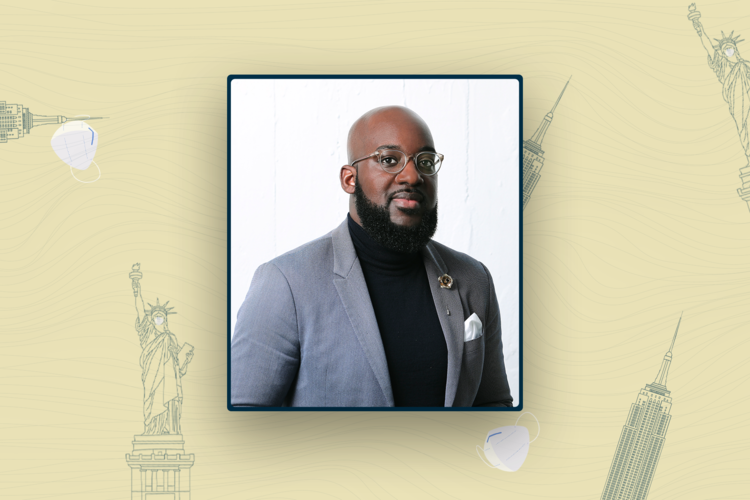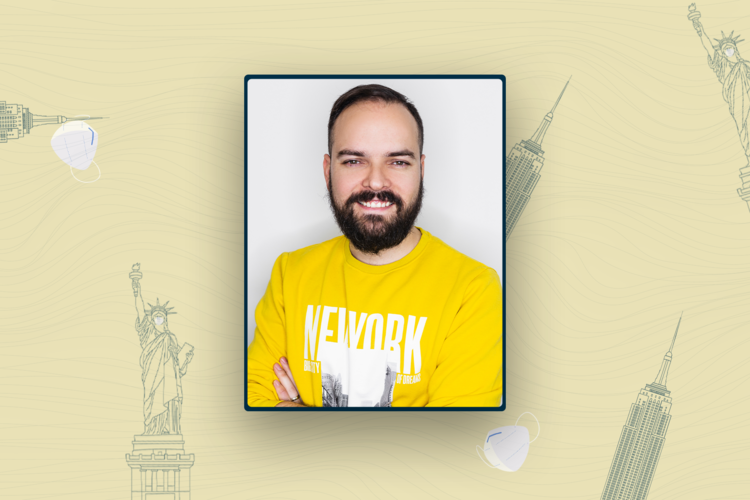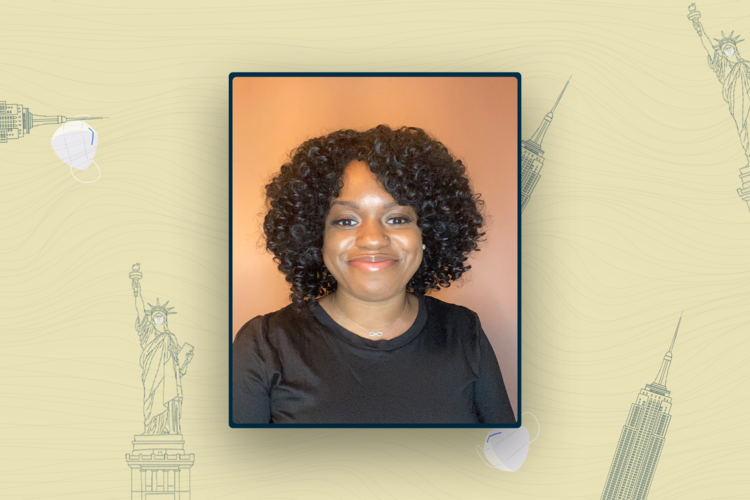Companies to Watch: 10 Startups Accelerating NYC’s Comeback
In the first three months of the pandemic, NYC’s unemployment rate spiked from 3.8 percent to 20 percent. The city has since made strides getting workers and businesses back on their feet, but the unemployment rate remains atypically high around nine percent — more than double the national average.
Unsurprisingly, that gap is heavily weighted in industries reliant on face-to-face work in hospitality, retail, healthcare, and transportation. Now more than ever, we need new tools and pathways for the entrepreneurs, workers, and small businesses that are the heartbeat of our local economy.
That’s why Tech:NYC, together with Google for Startups and Cornell Tech, launched the inaugural NYC Recovery Challenge, a program to support tech startups accelerating the city’s economic recovery. After a review of more than 170 applications, ten founders were invited to join the inaugural cohort, and for the past several months, they’ve been refining their business plans with industry and city leaders (and each other!) to maximize their impact and prepare for long-term success.
For this month’s special edition of Companies to Watch, coinciding with the final week of the NYC Recovery Challenge, we spoke to each of the founders about the insights they’ll take from the program and how tech can continue to lead recovery efforts that reach all New Yorkers.
COVERR
Kobina Ansah
Co-founder and CEO
What does your company do?
COVERR founder and CEO Kobina Ansah: COVERR’s mission is to provide financial services that are customized for gig economy workers (ex. Uber drivers) and empower them to reach their highest earning potential.COVID-19 completely upended a lot of industry areas. Does that ring true for gig workers?
KA: At the beginning of the pandemic, the business environment was extremely challenging. At a time when people — especially those without personal health insurance — were not sure how dangerous COVID-19 was, gig workers had to decide between working and putting their personal health at risk or providing for their families. This was exacerbated by the city’s lockdown, which eliminated several primary demand generators overnight for gig workers (demand from corporate, academic, entertainment, and travel businesses).That time was difficult, but some environmental factors have since improved. Due to the initial decline in demand for gig drivers, many expanded their skill set to include food delivery and medical ride services, further diversifying their income streams. Additionally, with more New Yorkers utilizing gig services to help maintain a sense of normalcy during the pandemic period (ex. grocery/Amazon package delivery), increased demand has improved per transaction earnings for many local gig workers. Daivergent
Byran Dai
Co-founder and CEO
What does your company do?
Daivergent founder and CEO Byran Dai: Daivergent is a technology platform that maximizes job readiness in the 70 million autism & disability population through AI software that delivers to them and their families the right interventions at the right time.All kinds of industries — especially tech — are prioritizing DEI strategies right now. What steps can tech executives take to welcome neurodiverse professionals that might otherwise be overlooked into their teams?
BD: Technology executives can start by looking into their internal organizations, and reaching out to self-advocates already employed in their teams to recognize their contributions. In doing so, they normalize a culture that promotes neurodiversity, which allows for a flywheel whereby new neurodivergent employees feel themselves invested in building out the next generation of strategies for their organizations.
Dollaride
Su Sanni
Founder and CEO
What does your company do?
Dollaride founder and CEO Su Sanni: Dollaride uses data intelligence to fill public transit gaps. What has activity on the app — or the dollar van industry in general — been like through the pandemic? Are you preparing for any ridership changes when we get to a post-pandemic time?
SS: During the pandemic, ridership constantly fluctuated and reached lows that many drivers hadn’t seen in years. But once Dollaride pivoted to partnering with local businesses, ridership activity in our app steadily grew and exceeded all previous records for daily and monthly riders.Guava
Kelly Ifill
Founder and CEO
What does your company do?
Guava founder and CEO Kelly Ifill: Guava is a digital community banking platform built for Black small-business owners and entrepreneurs. By providing easy access to financial products and a broader network of community services, our goal is to help drive growth for Black business and work to close the racial wealth gap.You founded Guava a full year into COVID-19 hitting New York. How did the pandemic shape your business idea?
KI: Black communities and our businesses have been disproportionately affected by the pandemic. If anything, the ongoing pandemic only further highlighted existing structural inequities and the urgent need for Black-owned businesses to get the same access and support as others. Leap Fund
Karen Schoellkopf
Founder and CEO
What does your company do?
Leap Fund founder and CEO Karen Schoellkopf: Workers face a “benefits cliff,” when public benefits phase down or out faster than income rises, leaving families worse off than before. Leap Fund offers solutions to identify benefits cliffs, avoid benefits cliffs, and ultimately, eliminate benefits cliffs altogether, all while creating pathways towards self-sufficiency and financial independence.Increasing wages isn't the problem, right? If that’s true, what exactly is putting workers in the “benefits cliff” bind? Did federal or local aid due to COVID-19 create even more challenges?
KS: Great question! Increasing wages is optimal for financial health, full stop. Increased pandemic aid didn’t create more challenges, it simply brought more attention to systems that were functioning poorly.The problem is that public benefits policy is the real culprit here. Flawed public benefits policy has not kept pace with self-sufficiency standards, and it’s not flexible enough to respond to the market, the cost of living, or changes in the way we live. Plus, many benefits recipients don't know they’ll hit a benefits cliff until after it’s already happened to them.Live XYZ
Jason Greenwald
Co-founder and CEO
What does your company do?
Live XYZ co-founder and CEO Jason Greenwald: Live XYZ is the first neighborhood map and storefront directory where every business is visible, indexed, and mapped to the front door. Cities are in critical need of accurate local data to support economic recovery and future growth. Live XYZ provides organizations across NYC with maps, data, and reporting tools to promote local businesses, track the economic health of our neighborhoods, and connect businesses to the resources and support systems that will help them thrive. There are more than 26,000 restaurants in NYC, all findable on your app — not to mention all the other business types you index. It seems almost impossible, but how did you build a tool that lists every single business in the city?
JG: Our team of mappers love the city and have walked every block in every borough to take pictures, capture information, and organize the world of urban data in a way that has never been done before. Our ground survey is built on our proprietary space-time data architecture and automation systems. Powerful machine learning and signal processing allows us to track events, activity, and updates as those places change over time.Mavity
Tomás Uribe
Co-founder and CEO
What does your company do?
Mavity co-founder and CEO Tomás Uribe: Mavity is the end-to-end collaboration tool and payouts platform for creative teams. We help small agencies and startups find and work with creative teams to help them execute design and audiovisual projects.Have you found that so-called “Great Resignation” has led more workers to ditch traditional job hunting and become freelancers — the type of people who might want to offer services on your platform?
TU: Absolutely. People now have the confidence to switch jobs easily, knowing that they can capture, curate, and convert their skills into sustainable jobs. The last decade was defined by the gig economy or the ability to have a side hustle or passive income. We believe this decade will be defined by the passion economy: people that love what they do — and can do it full-time. Shifterr
Tracey Hobbs
Founder and CEO
What does your company do?
Shifterr founder and CEO Tracey Hobbs: Shifterr connects hospitality employers to job seekers looking to fill shifts. We’re currently focused on connecting restaurants to front of house employees — your servers, bartenders, barbacks, runners and bussers, cashiers, hosts, and reservationists. We vet, onboard, and train those folks to ensure they’re ready to work.The idea for Shifterr started around D&I ratings for businesses, right? Did the pandemic change your business plan?
TH: The pandemic is responsible for how the concept has evolved. Originally, I did interviews with owners and managers of hospitality venues to gauge their interest in promoting diversity, equity, and inclusion (DEI) and how likely they would be to use a product that helped them achieve that. Through the interviews, we kept hearing the same thing: “DEI is great and we would love to support, but we can’t afford to pay for any extra products right now.”So I dug deeper and asked why they couldn't afford it. That’s when I was hit with the reality that many places could not find workers and, therefore, couldn’t sustain their normal operating hours and volume. That’s when the lightbulb went off.TYCA
Tanvir Islam
Co-founder and CEO
What does your company do?
TYCA co-founder and CEO Tanvir Islam: We’re TYCA (Thank You Come Again!), an online community marketplace connecting people to their local neighborhood brick and mortar bodegas. We’ve built some awesome tech to help people support their local bodegas and, at the same time, grow local economies and cultivate a better neighborhood experience. What’s an idea or piece of advice you got during the NYC Recovery Challenge program you’re most excited to implement?
TI: The NYC Recovery Challenge has been awesome and there's a lot of technical stuff that I can mention — revamping our hiring strategies or ways to refine data for our ML-based algorithms — but one of the key things I will take away is the idea that a founder can treat themselves as a startup by setting their own personal “objective and key results,” or OKRs. Founders are often told that they “are the product” in the early days of their startups, which I have heard one too many times, but I learned founders can also run their own experiments to hit their own OKRs to develop themselves, and thus to better run their startups. It’s akin to an athlete not just playing a sport to work out, but working out to make sure they can play the sport well. 









